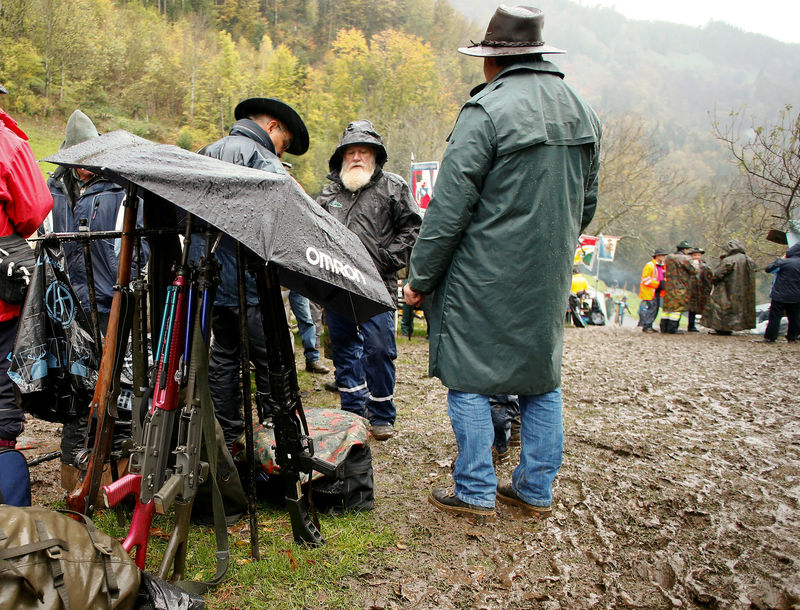
By Gabriela Baczynska
BRUSSELS (Reuters) – European Union foreign ministers will on Monday consider shelving membership talks with Turkey over what they see as its disturbing lurch away from democracy after a botched coup there, though there is no consensus for such a tough step yet.
Despite EU alarm at the scale of Ankara’s post-coup security crackdown, EU diplomats say they must keep talking to President Tayyip Erdogan to retain his crucial help in curbing migration to Europe and fighting Islamist militants in the Middle East.
But the fact that Austria, Luxembourg and some European lawmakers now openly call for suspending the Turkey talks marks a sea change in tone just eight months after the bloc promised Ankara the process would be sped up in exchange for its collaboration in reducing migration from its territory.
“Suspending membership talks with Turkey is not formally on the agenda but we expect some ministers to bring this up,” one EU official said of the 28 foreign ministers’ meeting scheduled in Brussels on Monday.
“It is true some deeply troubling things are happening in Turkey. But you have to ask yourself the question what exactly would we achieve by suspending the process now? How would that help? We need to keep communication channels open.”
An EU report this week accused Turkey of backsliding on its road to membership since the July coup attempt, since which Ankara has suspended, dismissed or arrested over 110,000 people including soldiers, judges, teachers, journalists and Kurdish leaders over alleged support of the putsch.
The EU’s top enlargement official said Turkey’s EU candidacy was now hanging in the balance.
“This is something that could happen,” one diplomat in Brussels said. “But not just yet, definitely not until EU leaders meet in December.”
Berlin, as well as several other EU capitals, have so far poured cold water on talk of aborting Turkey membership talks.
“COOL HEADS” NEEDED
“Yes, we have to be critical about developments in Turkey. But we also have to be cool-headed about it and not just jump in and get too much involved in criticizing Turkey’s domestic affairs,” another diplomat said.
“There is Turkey’s role in the region. But if we push too far we also risk being back to where we were last year on migration and it was tearing us apart.”
An EU-Turkey deal reached in March has cut to a trickle the number of refugees and migrants reaching Europe via Greece from Turkish shores after more than a million arrivals last year.
It has been sharply criticized by rights groups for undercutting international humanitarian standards. But it has also given breathing space to EU leaders under increasing popular pressure at home for failing to control the influx and embroiled in rows among themselves over how to handle it.
Turkey has told the EU it will have to “live with the consequences” if it halts membership talks.
Ankara’s EU membership has always been a long shot. Growing public unease about immigration and Islam in Europe, together with the post-coup clampdown in Turkey, make a Turkish entry into the EU even less likely in the forseeable future.
Turkey has set its sights on getting visa-free travel for its citizens to the EU by the end of the year in return for making sure migrants do not leave its shores for Europe. That prospect, however, is also looking increasingly dim.
Turkey reinstating death penalty would mark crossing a red line for EU leaders. “If Turkey pushes through death penalty legislation, then the halt of the accession process will be automatic,” a senior EU diplomat said.
(Additional reporting by Alastair Macdonald; writing by Gabriela Baczynska; editing by Mark Heinrich)









